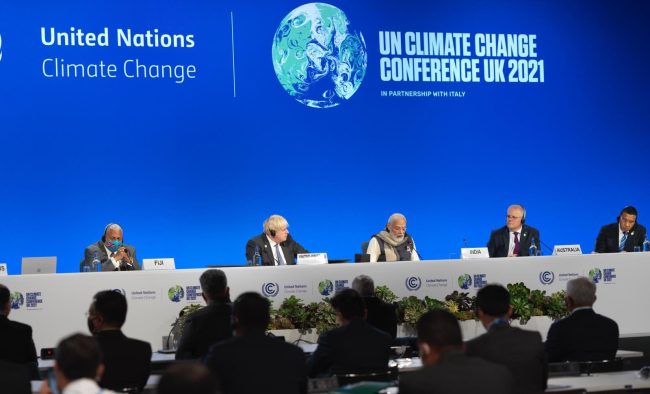
| Title: | India at COP26 and Beyond |
| Author/s: | Pallavi Das, Vaibhav Chaturvedi |
| Abstract: | The 26th Conference of Parties (COP26) was held in Glasgow, United Kingdom, in November 2021. Countries all around the world sent their national delegations to negotiate and secure their positions on the climate change agenda. India’s prime minister, environment minister and a national delegation visited Glasgow to push India’s concerns and agenda. While there were some wins for India, there were also some compromises. This paper presents some of the past promises and progress, future implications and key takeaways for India from COP26. |
| Date: | 23 December 2021 |
| Read More |
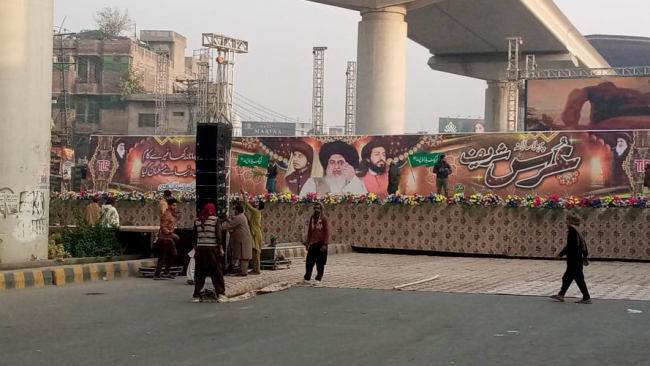
| Title: | Paradoxes of the Good Muslim, Bad Muslim Dichotomy: Understanding the Politics of Pakistan’s Blasphemy Laws |
| Author/s: | Imran Ahmed |
| Abstract: | Priyantha Kumara Diyawadana, a 48-year-old Sri Lankan national and textile factory manager, was lynched in Sialkot. The killing has once again sharpened the focus on Pakistan’s most controversial blasphemy laws. While state and religious authorities were quick to condemn extremism, no criticism, however, was levelled in these top levels towards the laws themselves. But a discourse on ‘good Muslims’ and ‘bad extremists’ does little to move Pakistan forward as core issues and contradictions remain. This paper traces some of the history, design flaws and the politics of Pakistan’s blasphemy laws and examines some factors which render them resistant to change or repeal. Blasphemy laws have acquired a symbolic significance in Pakistan, and their protection and application have become a litmus test for judging the Islamic character and commitment of the state. |
| Date: | 16 December 2021 |
| Read More |
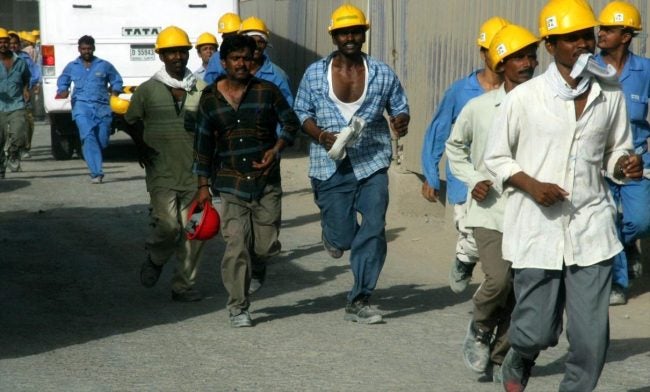
| Title: | International Law: Shaping Migration and Development in India[1] |
| Author/s: | Robi Rado |
| Abstract: | An underappreciated set of international legal agreements is helping shape migration from and development in India. The country’s labour migration agreements with other states involve political choices by the Indian government that are being overlooked in public discourse. The agreements build on conventional wisdom about migration and development, and reflect a concern with a particular kind of development in India. At the same time, the agreements help normalise and encourage temporary migration from India, even though it is widely recognised that Indian workers who move abroad in this way are more vulnerable to exploitation. |
| Date: | 6 December 2021 |
| Read More |
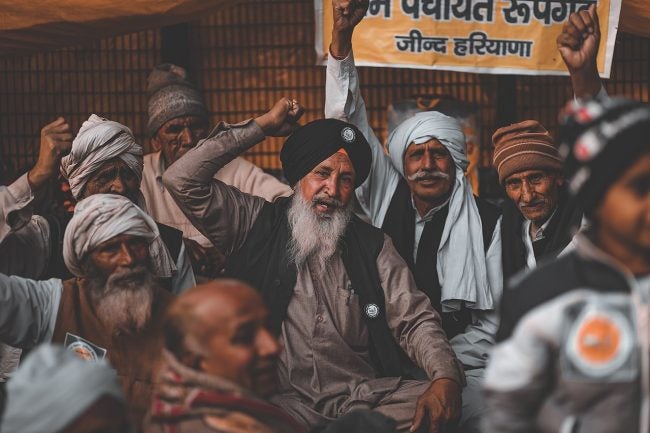
| Title: | Repeal of Agriculture Reform Laws: Tactical Retreat by the Indian Government |
| Author/s: | Vinod Rai |
| Abstract: | In September 2020, the Indian Parliament passed three Bills seeking amendments to the existing farm laws. These were seen as progressive steps but met with resistance from farmers in Punjab and western Uttar Pradesh (UP). The government engaged with various farmers’ groups in several rounds of discussions and even deferred the implementation of these laws. Repeated attempts by the government could not persuade the farmers to accept the amended Acts. The agitation has continued for a year with neither side willing to step back. The government has now announced a repeal of the Acts. It is surmised that the decision to resile was taken in the light of perceived reverses for the Bharatiya Janata Party in the upcoming elections in UP and Punjab. However, it is hoped that the tactical retreat is merely to assuage a section of farmers and that the long-term intent for economic reforms will continue to be pursued through more robust and informed debate in parliament. |
| Date: | 29 November 2021 |
| Read More |
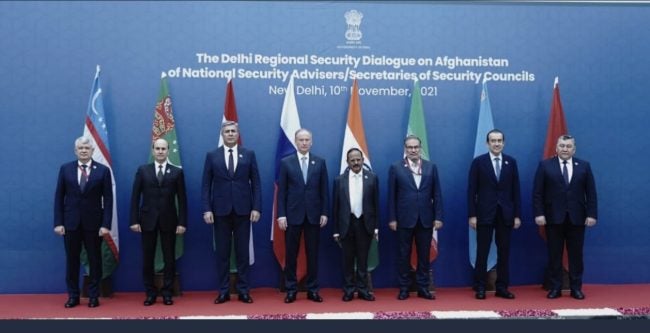
| Title: | Redefining India’s Role In Afghanistan |
| Author/s: | Rakesh Sood |
| Abstract: | The return of the Taliban had been in the making for a decade. Convinced that they have come to power through military means, the Taliban do not feel the need to form an inclusive government. Unlike other neighbouring countries, India had been hesitant in exploring engagement with the Taliban and ended up withdrawing from the country. However, it has legitimate interest in the stability of Afghanistan and enjoys goodwill among all communities. |
| Date: | 23 November 2021 |
| Read More |
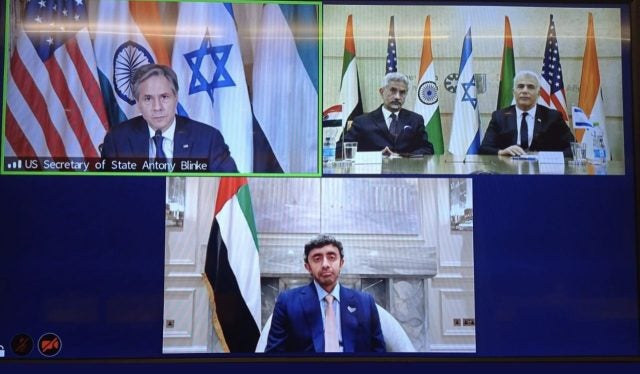
| Title: | A Tale of Two Quads |
| Author/s: | Navdeep Suri |
| Abstract: | The foreign ministers of Israel and the United Arab Emirates met the United States (US) Secretary of State in Washington DC on 13 October 2021. Less than a week later, India joined the trio for the first virtual meeting of a new quadrilateral formation, creating instant comparisons with the Indo-Pacific Quad featuring the US, India and Japan. This paper looks at the significance of the new West Asia Quad, its possible economic and strategic implications and its potential to learn from and possibly complement the Indo-Pacific Quad. |
| Date: | 17 November 2021 |
| Read More |
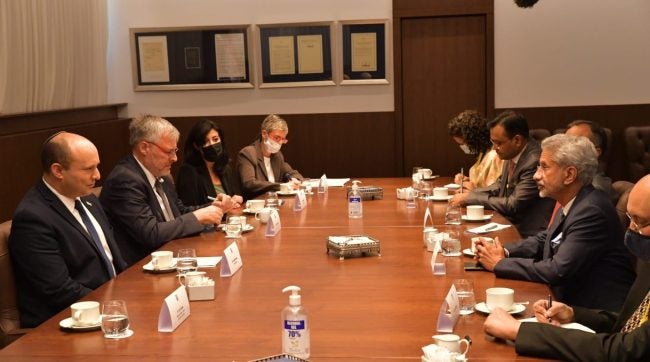
| Title: | Indian External Affairs Minister’s Visit to Israel: Going Beyond the Bilateral |
| Author/s: | P R Kumaraswamy |
| Abstract: | India’s External Affairs Minister S Jaishankar’s visit to Israel in October 2021 signals a strategic shift in India’s Middle East policy. At one level, it signals the continuing Indo-Israeli bonhomie and persistent domestic media interest in bilateral relations. By not visiting Ramallah or making any statement on the Palestinian question, Jaishankar has enhanced the dehyphenated India’s policy towards Israel and Palestine. The emerging mini-Quad, comprising Israel, the United Arab Emirates, the United States and India, during the visit, is a significant development and signals India integrating Israel in its Middle East policy. This should also enhance India’s economic-centric engagements with the region. |
| Date: | 8 November 2021 |
| Read More |
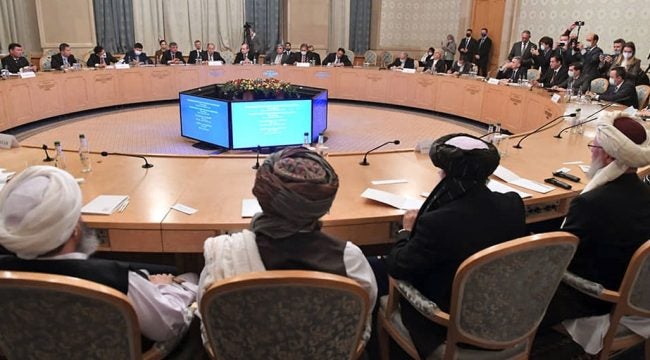
| Title: | Russia’s Policy Overtures in Afghanistan |
| Author/s: | Claudia Chia, Zheng Haiqi |
| Abstract: | On 20 October 2021, the Russia-led ‘Moscow Format Consultations’ convened in its capital city. This is the largest and most high-profile international meeting on Afghanistan since the Taliban took over in August 2021. The joint statement stressed the need for “practical engagement” to acclimate to “the new reality [of] the Taliban coming to power in the country, irrespective of the official recognition of the new Afghan government by the international community.” This paper discusses the recent meeting, Russia’s policy towards Afghanistan and its views of the Taliban. |
| Date: | 3 November 2021 |
| Read More |
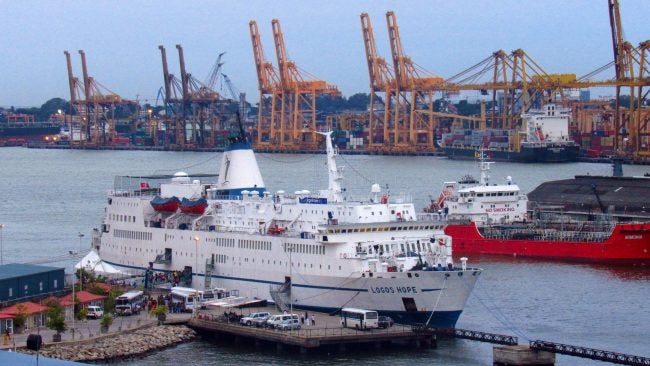
| Title: | Maritime Trade in Commonwealth South Asia: A Boon for Post COVID-19 Recovery and Resilience |
| Author/s: | Salamat Ali, Brendan Vickers, Ganeshan Wignaraja |
| Abstract: | With long coastlines, vast marine areas and leading global seaports, the South Asian countries in the Commonwealth are important players in the global ocean domain. The maritime and shipping sector handle a significant share of these countries’ global exports. Trade and growth in Commonwealth South Asia seem to be on a recovery trajectory from the devastating impact of the COVID-19 pandemic. However, skyrocketing freight rates on the major shipping routes fuelling rising trade costs, maritime security and other risks could affect exports to Western markets and derail recovery. A set of policies aimed at improving logistics, facilitating trade and ensuring environmental sustainability can help to harness the power of maritime trade in building back better in Commonwealth South Asia. |
| Date: | 25 October 2021 |
| Read More |
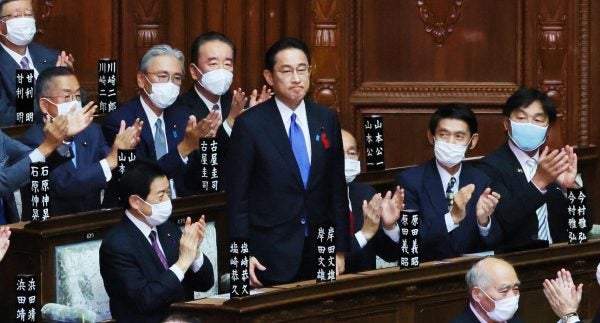
| Title: | Japan’s New Prime Minister in Office: Foreign Policy Priorities and Ties with India |
| Author/s: | Purnendra Jain |
| Abstract: | On 4 October 2021, Fumio Kishida took over the reins as Japan’s prime minister, following Prime Minister Yoshihide Suga’s unexpected announcement the previous month to step down after serving just one year in office. Kishida, a former foreign minister from the same ruling Liberal Democratic Party will largely continue in the footsteps of his predecessors – Shinzo Abe and Suga – as far as Japan’s broad foreign policy directions are concerned. Japan-India diplomatic interaction, therefore, will remain on a positive path under Kishida, since he is familiar with India, having been foreign minister for five years (2012-2017) under Abe, and was one of the key ministers to take India-Japan relations to new heights under the Abe government (2012-2020). The crucial question is how long Kishida will stay in office and whether he, like Abe, will continue to regard India as one of Tokyo’s top foreign policy priorities. |
| Date: | 18 October 2021 |
| Read More |
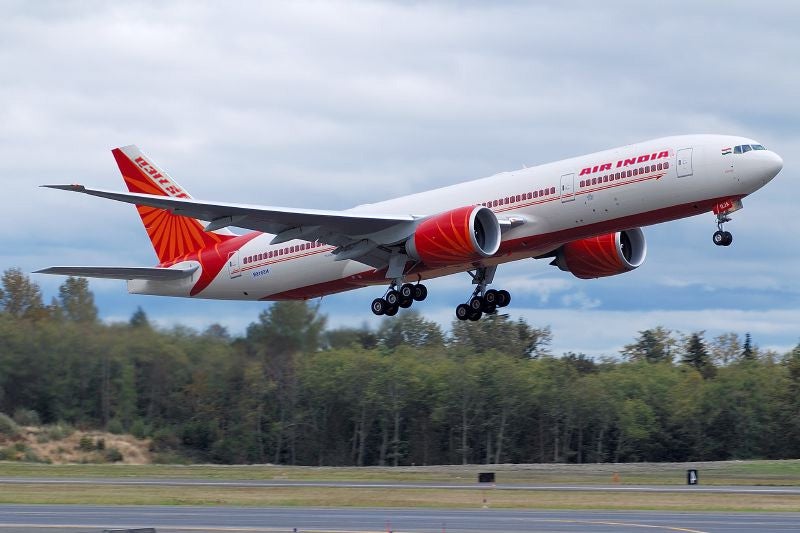
| Title: | Maharaja Returns to the Tata Group: Disinvestment of Air India |
| Author/s: | Vinod Rai |
| Abstract: | In a landmark decision announced by the Indian government on 8 October 2021, the Tata Group’s bid for the state carrier Air India has been approved. Though there were attempts to privatise the airline since 2001, none met with any success. The merger of Air India and Indian Airlines in 2007 complicated issues further with the merged entity running up losses and a huge volume of debt. Faced with mounting demands on the state exchequer and dissatisfaction in the functioning of the airline, the government decided to finally bite the bullet and divest its entire stake in a flexible and well-structured deal. The success of this deal will infuse great confidence among bidders in the ability of the government to deliver clean and timely contracts in other divestment proposals. |
| Date: | 18 October 2021 |
| Read More |
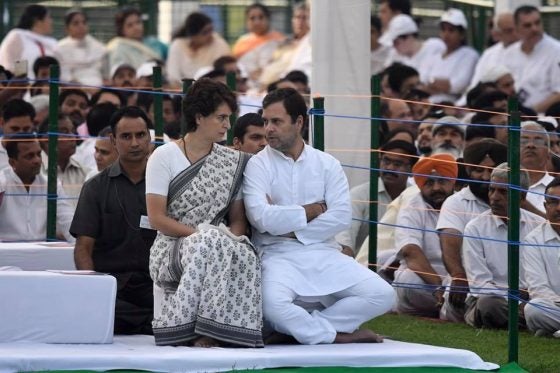
| Title: | Congress Leadership Crisis: What it Portends for the Party? |
| Author/s: | Vinod Rai |
| Abstract: | The Congress party has been facing upheavals in all its state units. The Punjab fiasco, which was simmering for a while, led to a change in leadership in the state. The new dispensation is a gamble that the party’s high command has taken with neither the new Chief Minister nor state party President having a stellar track record of leadership. There are also rumblings within the local units of the party in Chhattisgarh, Rajasthan and Kerala. At the national level, the group of 23 senior Congress leaders (G-23) is becoming vocal again with demands for organisational reform and a Congress Working Committee meeting. The situation is compounded with the Gandhi family neither calling for organisational elections nor deciding on who among them is willing to be party chief, since Sonia Gandhi is believed to be only interim president. If the party has to be of relevance in the states going to polls next year, it needs to get its act together very soon. |
| Date: | 11 October 2021 |
| Read More |
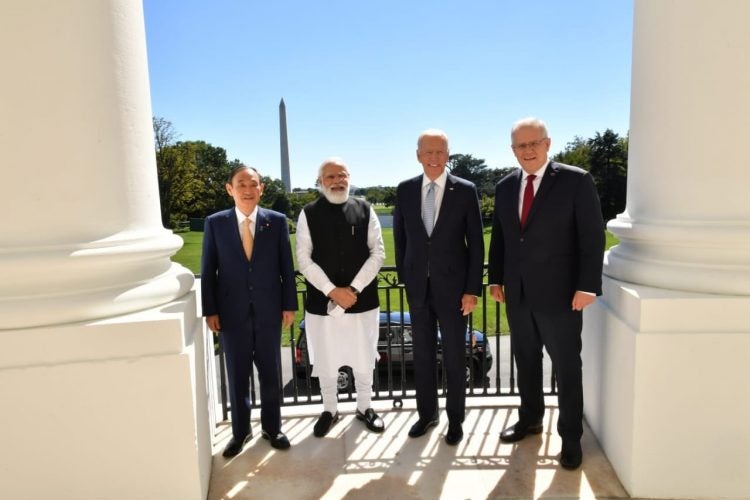
| Title: | The New Era of the Quad: Opportunities for India-US Cooperation |
| Author/s: | Zheng Haiqi, Claudia Chia |
| Abstract: | The Quadrilateral Security Dialogue (Quad) has officially been institutionalised with the convening of its first in-person Leaders’ Summit in Washington on 24 September 2021. The release of a joint statement, new initiatives and guidelines have garnered considerable attention in the media and policy circles. With Quad engagements deepening since 2017, the fields of cooperation and areas of discussion have also expanded. Alongside the summit, the United States (US) and India also released a joint leaders’ statement which reflects “charting a new course” in the partnership between the world’s largest democracies.
This paper looks at the growing Quad collaboration and its new initiatives which would further boost India-US cooperation. It concludes that India is becoming increasingly significant to the US to the point where it may be considered as the most salient Quad member and is likely to be a key US partner in Asia for the foreseeable future. |
| Date: | 8 October 2021 |
| Read More |
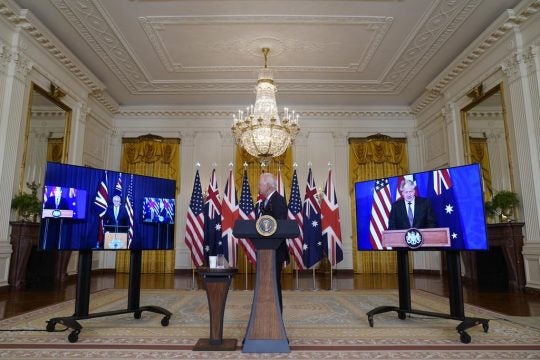
| Title: | AUKUS: Arms, Allies and the Geopolitics of the Indo-Pacific |
| Author/s: | Yogesh Joshi |
| Abstract: | The announcement of AUKUS, a strategic alliance between Australia, the United Kingdom, and the United States (US), has created a kerfuffle whose echoes can be heard from the Indo-Pacific to the Atlantic. Washington’s decision to offer Australia the most sophisticated of its military technology and hardware has left Canberra relieved, Beijing enraged, Paris slighted and Southeast Asia anxious. AUKUS has tremendous significance for the unfolding great power rivalry between the US and China, but it also impacts the strategy and calculation of all other actors in the Indo-Pacific. |
| Date: | 6 October 2021 |
| Read More |
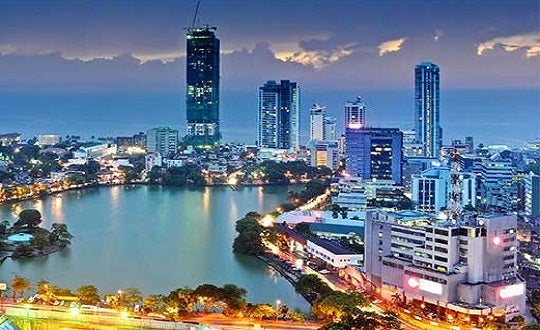
| Title: | Should Sri Lanka Reboot Foreign Policy and the Economy for COVID-19 Recovery? |
| Author/s: | Chulanee Attanayake, Ganeshan Wignaraja |
| Abstract: | President Gotabaya Rajapaksa’s government celebrated its first-year anniversary after winning a two-thirds majority in the parliamentary elections held on 5 August 2020. The initial months showed the government moving towards delivering ambitious promises but one year later, some fault lines are emerging. Amidst an on-going COVID-19 pandemic, the government is facing challenges on the foreign policy front and the economy. A reboot to a neutral foreign policy and an economic reform programme while continuing vaccinations could help Sri Lanka’s COVID-19 recovery. This paper discusses these key aspects. |
| Date: | 28 September 2021 |
| Read More |
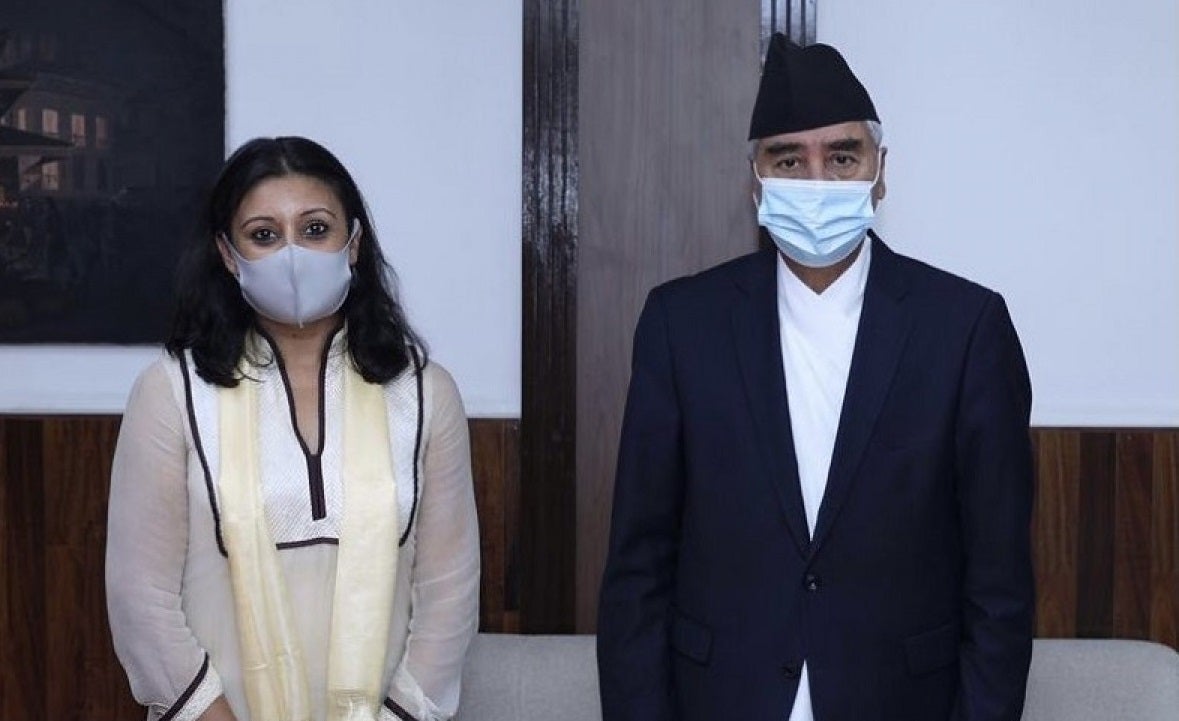
| Title: | The MCC Nepal Compact A Victim of Political Divisions |
| Author/s: | Amit Ranjan |
| Abstract: | The Millennium Challenge Corporation (MCC) Nepal Compact has politically divided Nepal’s ruling coalition. The Nepali Congress wants to push for its ratification in the parliament, but its coalition partners have some serious reservations. To convince the Nepali political leadership, the MCC’s Vice President, Fatema Z Sumar, arrived in Kathmandu and held meetings with leaders from both the ruling coalition and the opposition. |
| Date: | 20 September 2021 |
| Read More |
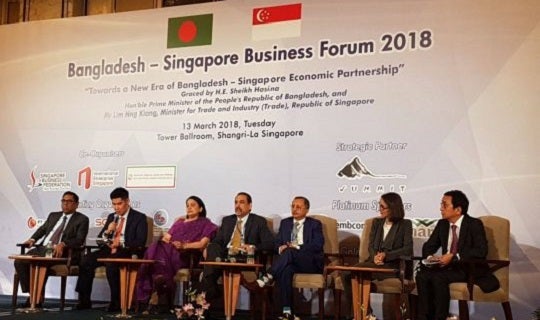
| Title: | Bangladesh’s FTA with Singapore: A Stepping Stone Towards the ASEAN Market |
| Author/s: | Mohammad Masudur Rahman, Divya Murali |
| Abstract: | Bangladesh’s strong trade links with Singapore and the urge to locate new markets with preferential access make Singapore an ideal partner for negotiating a free trade agreement (FTA). An FTA with Singapore will provide Bangladesh preferential access to the entire Southeast Asian and Asia Pacific regions. For Singapore, the FTA would be the third with a South Asian country – after India and Sri Lanka – and will help to strengthen its market penetration in South Asia. A clear understanding of the economic impact of FTAs is key for Bangladesh particularly after it graduates from Least Developed Countries category in 2026. Coordination among different ministries and departments will play a critical role for Bangladesh where differing views are prominent among different ministries. As Singapore is an experienced FTA partner, Bangladesh will find in it a good supporting mentor for its future FTA negotiations roadmap. An FTA with Singapore will not only ensure market access for both goods and services but will also reflect Bangladesh’s positive image and competitiveness globally to attract foreign direct investment. |
| Date: | 13 September 2021 |
| Read More |
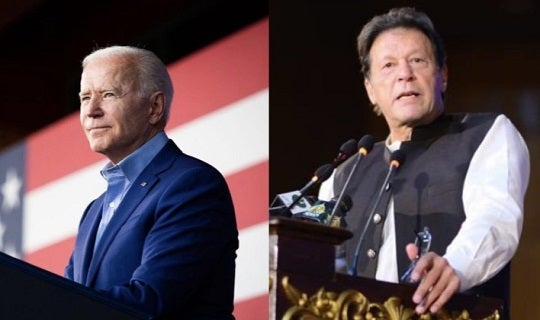
| Title: | Prospects for Pak-US Relationship under President Biden |
| Author/s: | Shafaat Ullah Shah |
| Abstract: | Since independence, Pakistan has followed one-sided pro-United States (US) policies. However, the relations have been mostly vacillating. In the current geostrategic environment, and amidst the increased confrontation between the US and China, the relevance the America accords to Pakistan is restricted to Afghanistan and is marred by its close alliance with China and the strategic importance of India. Pakistan has been one of the worst sufferers from war-torn Afghanistan and has played a key role in negotiating the Peace Accord between the US and the Taliban. The prospects for Pakistan-US relations under President Joe Biden will remain in the context of Afghanistan and limited to economic and military assistance. In an anti-regional framework formed by Iran, China and Russia, the US’ reliance on Pakistan is likely to grow even after the withdrawal of troops from Afghanistan. |
| Date: | 2 September 2021 |
| Read More |
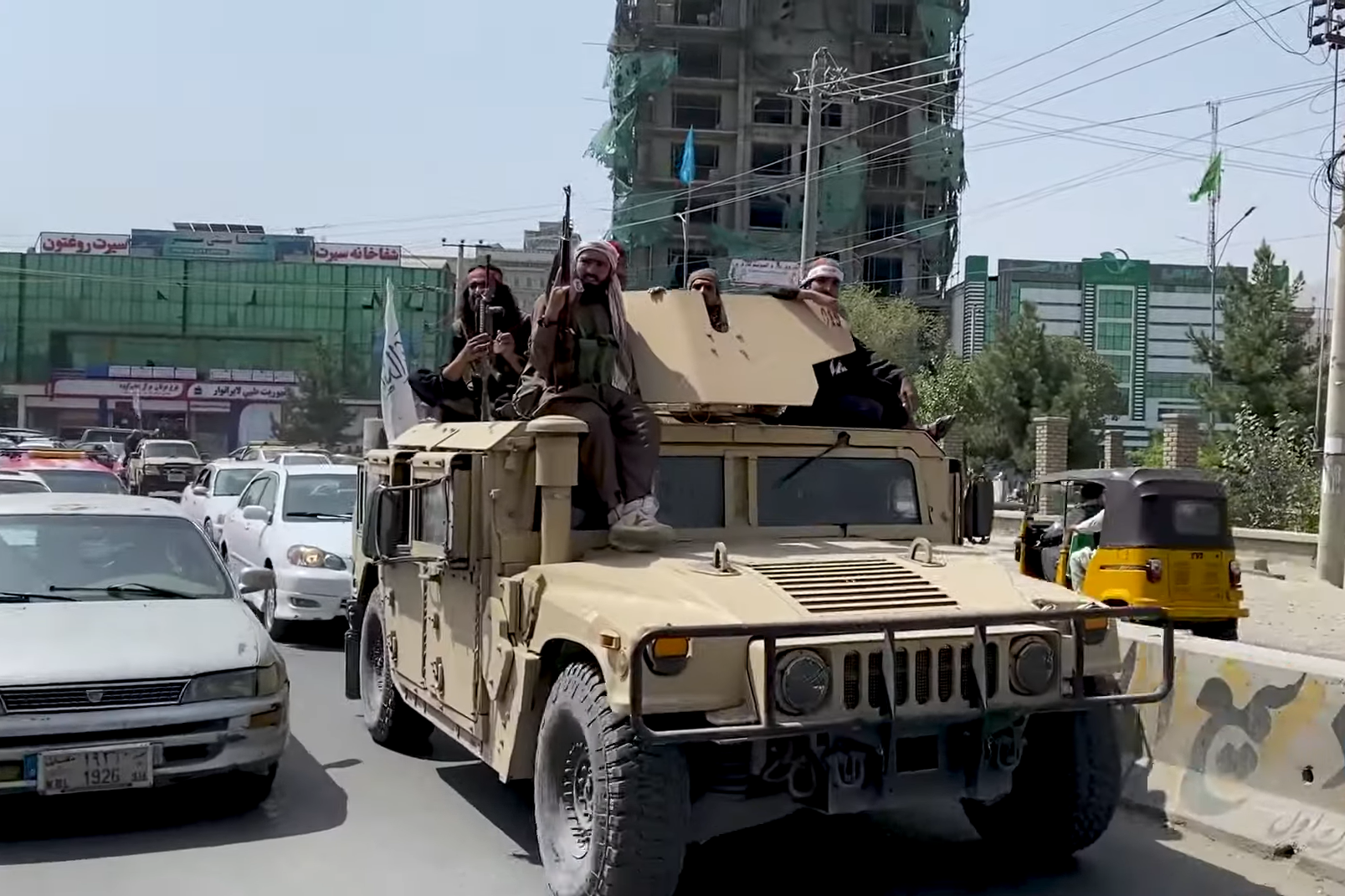
| Title: | The Fall of Kabul, Peace Process and Afghanistan’s Political Future |
| Author/s: | Shanthie Mariet D’ Souza |
| Abstract: | With the fall of Kabul and capture of power by the Taliban, the peace processes and intra-Afghan dialogue to decide Afghanistan’s future have become redundant. In the coming days, the insurgent group will decide the form of the future government, structure of administration, type of governance and the ideology and legal system which could subvert the fragile gains of the last two decades. Battlefield dominance of the insurgents, notwithstanding the pockets of resistance which are in their early stages of emergence, the need to avert a civil war situation and consequent large-scale exodus of refugees and evacuation of its nationals from the war-torn country, has put the international community in a Catch-22 to engage with the Taliban. Democratic experiment of the last two decades and the rights of women and minorities could be a casualty of the marriage of convenience between the international community and the insurgents who are seeking legitimacy, recognition and international aid. The need, therefore, is to kick start a new round of negotiations and engagement that seeks to reverse the losses. |
| Date: | 27 August 2021 |
| Read More |

| Title: | Pakistan’s Role in the Future of Afghanistan |
| Author/s: | Zahid Shahab Ahmed |
| Abstract: | The speed of the Taliban takeover of Afghanistan has surprised everyone. What was expected to take at least three months took merely a few weeks with the Taliban entering Kabul on 15 August 2021. Born with a security dilemma concerning India and territorial disputes with Afghanistan and India, Pakistani policymakers have been viewing Afghanistan through the lens of strategic depth. This means that its Afghanistan policy has been India-centric as it has been trying to limit India’s influence in Afghanistan by also paving the way for a pro-Islamabad government in Kabul. Part and parcel of this puzzle has been Pakistan’s support for the Taliban. As Pakistan has been a long-time supporter of the Taliban, it is important to analyse how this relationship and other concerns will shape its role in the future of Afghanistan. |
| Date: | 26 August 2021 |
| Read More |
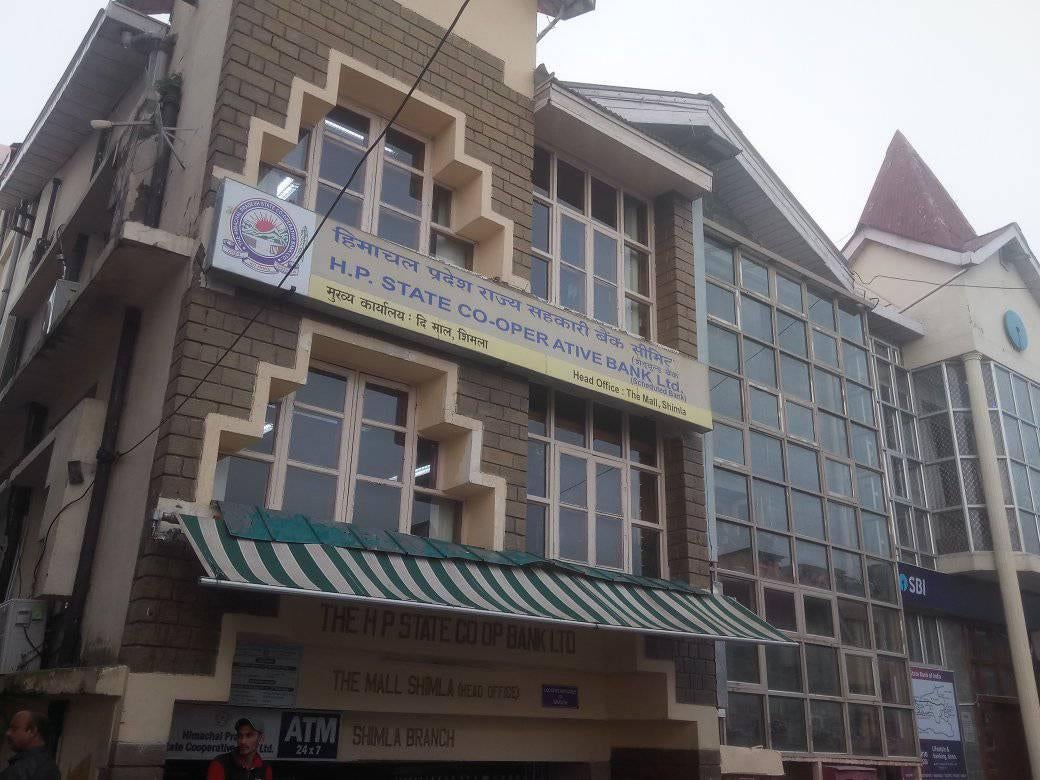
| Title: | Co-operatives in India and the Creation of a New Union Ministry of Co-operation |
| Author/s: | K P Krishnan |
| Abstract: | This paper provides an overview of the legal framework within which co-operative societies function in India. It specifically discusses the state of credit and multi-state co-operatives. While regulatory turf issues relating to credit co-operatives seem to be settled with the passage of the Banking Regulation (Amendment) Act, 2020, it is unclear whether the creation of a new Ministry of Co-operation could do the same for multi-state and other co-operatives. The paper also looks at whether such an executive action could tantamount potentially to an infringement of state governments’ powers pertaining to the co-operatives sector. |
| Date: | 28 July 2021 |
| Read More |
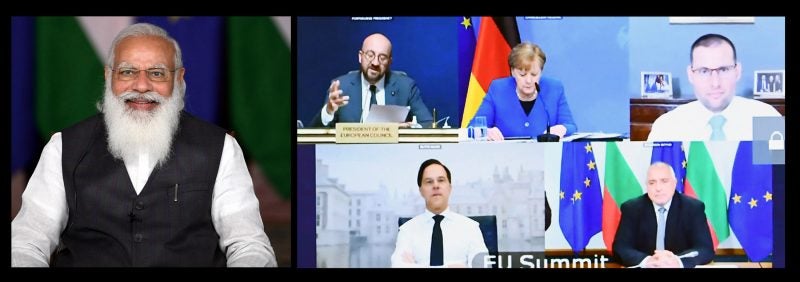
| Title: | The EU and India’s Indo-Pacific Strategies: A Strategic Synergy |
| Author/s: | Zheng Haiqi, Claudia Chia |
| Abstract: | Following the release of the European Union (EU) Strategy for Cooperation in the Indo-Pacific in April 2021, the EU High Representative Joseph Borrell visited Indonesia in June 2021 and elucidated the potential of the bloc to contribute to the regional order as a trusted and reliable partner in the Indo-Pacific. As a newcomer and an external power to the region, the EU needs to manage relations and deepen cooperation with existing regional powers. In this context, India – being the most powerful state among Indian Ocean littoral – is an essential partner that the EU must engage with to secure its strategic interests in the Indo-Pacific region (IPR). The comparison between the EU and India’s approaches towards the IPR implies that the two approaches have much in common, leaving ample space to achieve strategic synergy and aid each other in securing gains in the geopolitical gambit of the IPR. |
| Date: | 22 July 2021 |
| Read More |
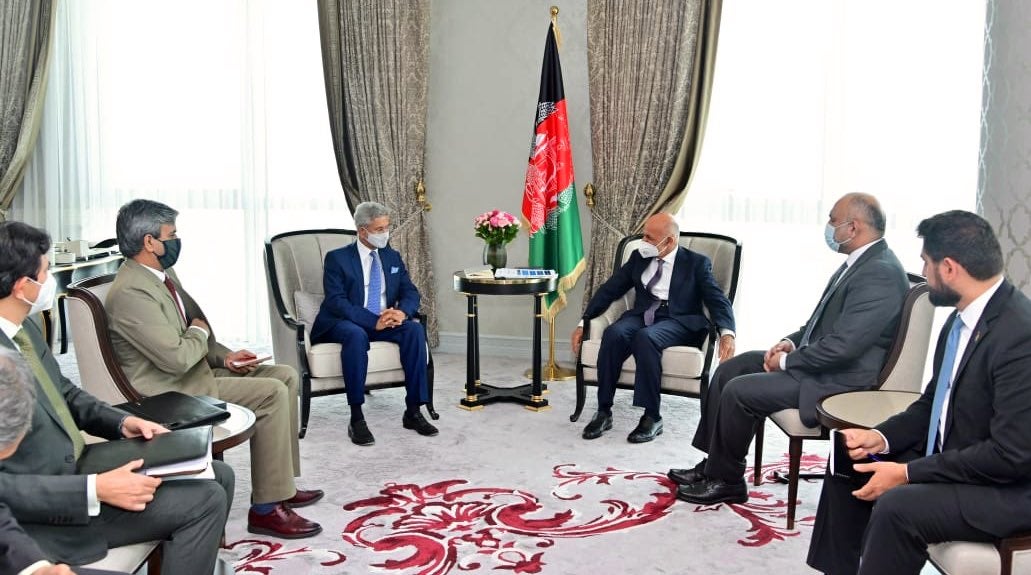
| Title: | The Good, the Bad and the Nationalist Taliban: Are we seeing a Change in India’s Stance? |
| Author/s: | Chayanika Saxena |
| Abstract: | India’s outreach to the Taliban must not be read simply as a reversal of its existing policies. Instead, it must be seen and projected as an attempt by New Delhi to shore up the Ashraf Ghani-led government of Afghanistan to create an internationally conducive environment for the peace talks to take shape. While the Taliban is yet to respond to the evolving Indian signals, it will be safe to claim that the group would not risk alienating a powerful neighbour, especially when the same country has invested billions of dollars in Afghanistan. In a way, then, India’s decision to engage with the Taliban might as well assist the Afghan government to intensify collective pressure on the Taliban to start acting like a reasonable political group and renounce its violent, insurgent tactics in its wake. |
| Date: | 19 July 2021 |
| Read More |
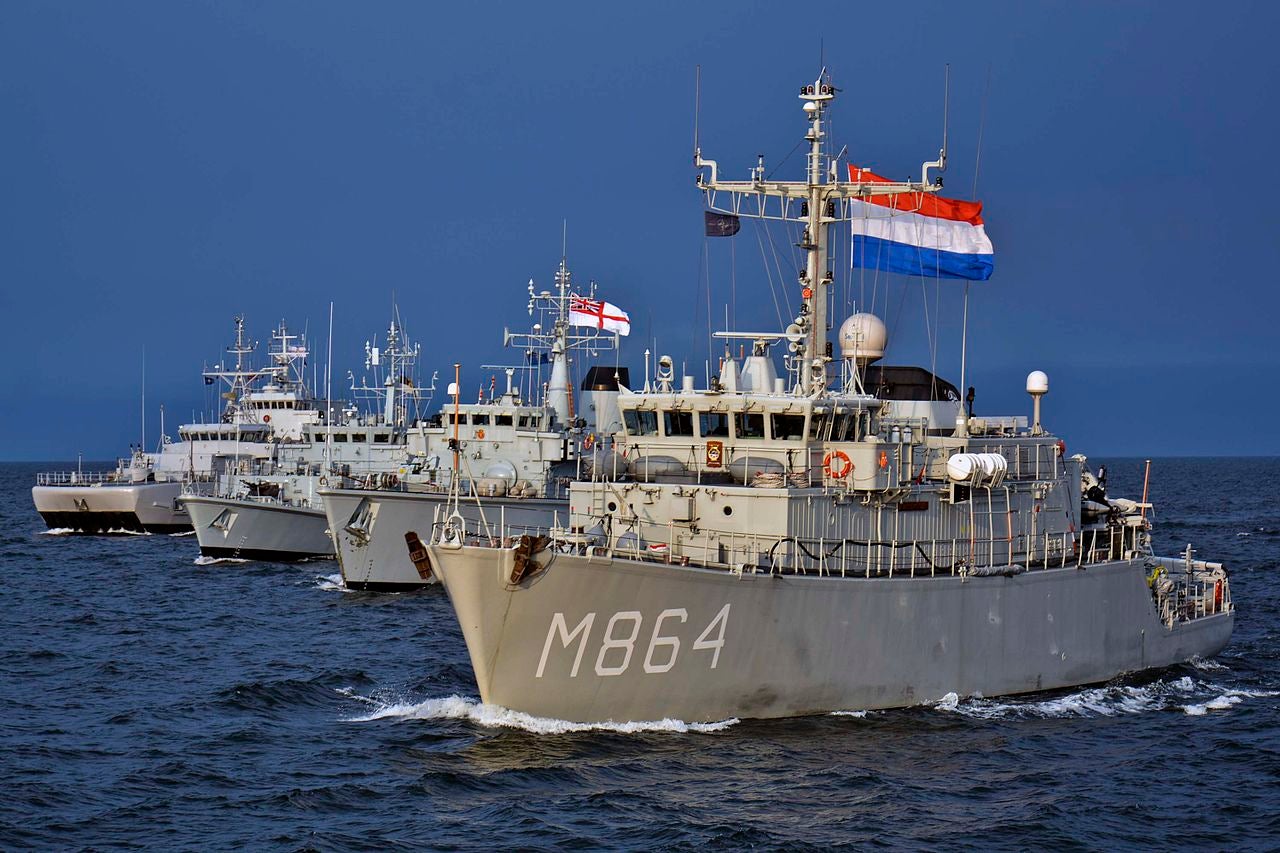
| Title: | Towards Meaningful Action: The Netherlands and the EU turn to the Indo-Pacific |
| Author/s: | Maaike Okano-Heijmans |
| Abstract: | In November 2020, the Netherlands became the third European Union (EU) member state to release an Indo-Pacific strategy, aiming to push forward a significant policy shift in Europe towards the Indo-Pacific. As competition intensifies over hard power projection, as well as influence over digital connectivity and leadership in standard-setting in new technologies and digital governance, the EU and its member states are increasingly adopting a foreign policy posture to reflect this emerging reality. With a focus on multilateral cooperation with like-minded partners, European actors hope to increase their involvement in ocean governance, traditional as well as digital connectivity projects, forge stronger economic ties, and safeguard liberal and democratic values in the Indo-Pacific. |
| Date: | 10 July 2021 |
| Read More |
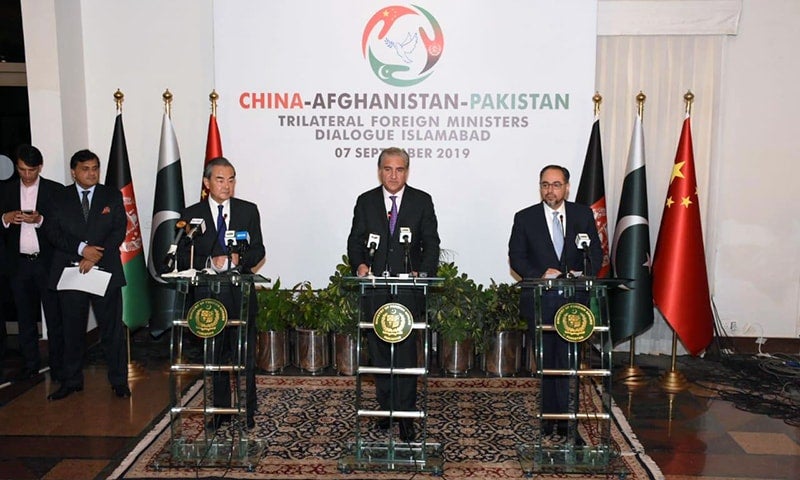
| Title: | Exploring China’s Afghanistan Policy |
| Author/s: | Claudia Chia, Kunthavi Kalachelvam, Zheng Haiqi |
| Abstract: | The imminent withdrawal of American troops from Afghanistan has put the spotlight on regional powers to determine how to navigate new complexities in the region as Kabul deals with an impending security vacuum. Regional actors such as China, Pakistan and Russia have stepped forward to exert their diplomatic influence over the negotiations to ensure a political settlement and smooth transition. China has affirmed its commitment to supporting “Afghan-led and Afghan-owned” peace talks while calling other countries “to play a constructive role” in Afghanistan.
This paper looks at China’s policy in Afghanistan post-9/11, the geopolitical influences impacting China’s position there and the opportunities for its involvement in Afghanistan moving forward. |
| Date: | 25 June 2021 |
| Read More |
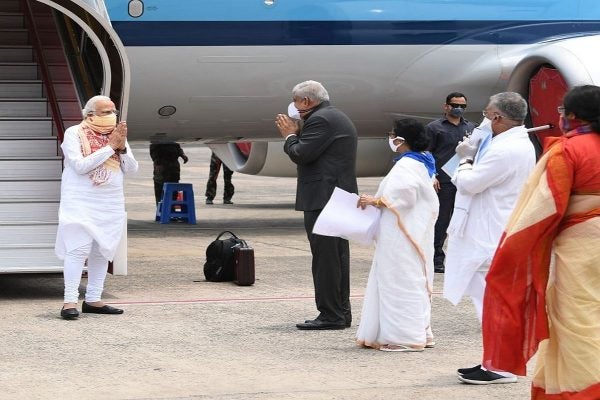
| Title: | The West Bengal Standoff: Misguided Actions around Modi’s Visit |
| Author/s: | Vinod Rai |
| Abstract: | The central government and the West Bengal government are caught in a most unfortunate tussle. The imbroglio behooves neither the political functionaries nor the bureaucracy on either side. The state’s Chief Minister, Mamata Banerjee, took the ill-advised decision of not attending Prime Minister Narendra Modi‘s meeting when the latter was on a cyclone damage assessment mission. This was not taken kindly by the central government, which has decided to heap reprisal on the chief secretary. The entire episode has snowballed into a prestige issue. Considering the unlikely possibility of any concrete result emerging from the saga, the best course of action would be to close the chapter with the government reiterating its earlier instructions on how VVIP visits are to be handled. |
| Date: | 21 June 2021 |
| Read More |
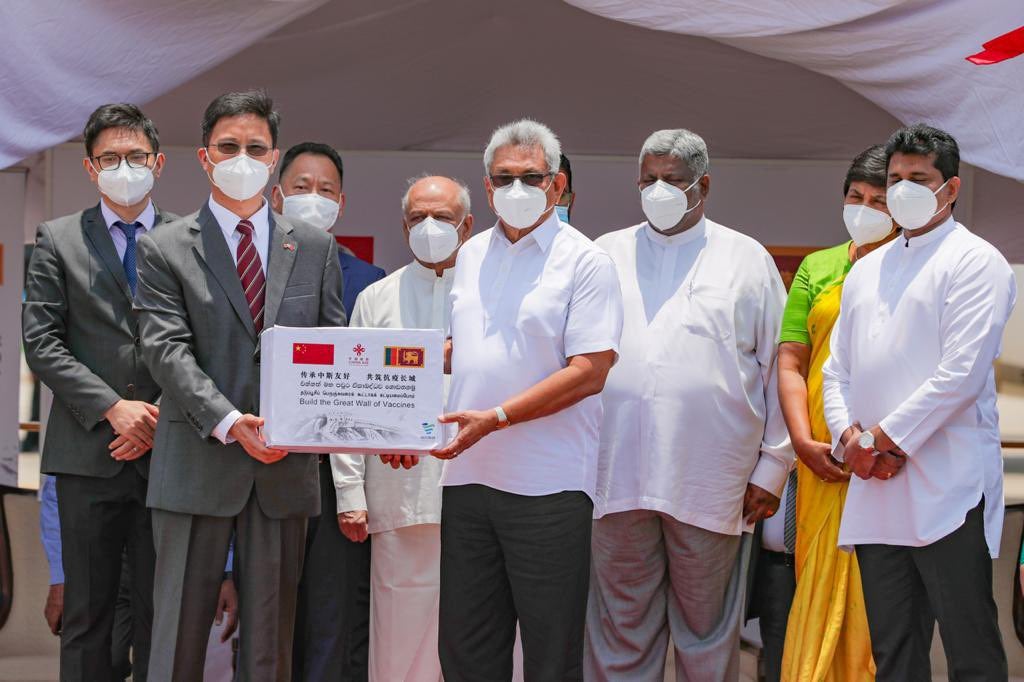
| Title: | China’s Pandemic Diplomacy in South Asia |
| Author/s: | Chulanee Attanayake, Zheng Haiqi |
| Abstract: | On 27 April 2021, Chinese Foreign Minister Wang Yi held a video conference with his counterparts from Afghanistan, Bangladesh, Nepal, Pakistan and Sri Lanka. The virtual conference was an effort to collaborate and discuss China’s support to South Asian nations in combating COVID-19 and post-pandemic recovery. Since the Coronavirus outbreak, Chinese initiatives in the region emphasise Beijing’s efforts to enhance its soft power and diplomacy. Amidst this backdrop, this paper evaluates how China has emerged as an important partner for South Asia in responding to the global pandemic. It examines how India’s own challenges have paved the way for China to exert its presence in the region further. |
| Date: | 15 June 2021 |
| Read More |
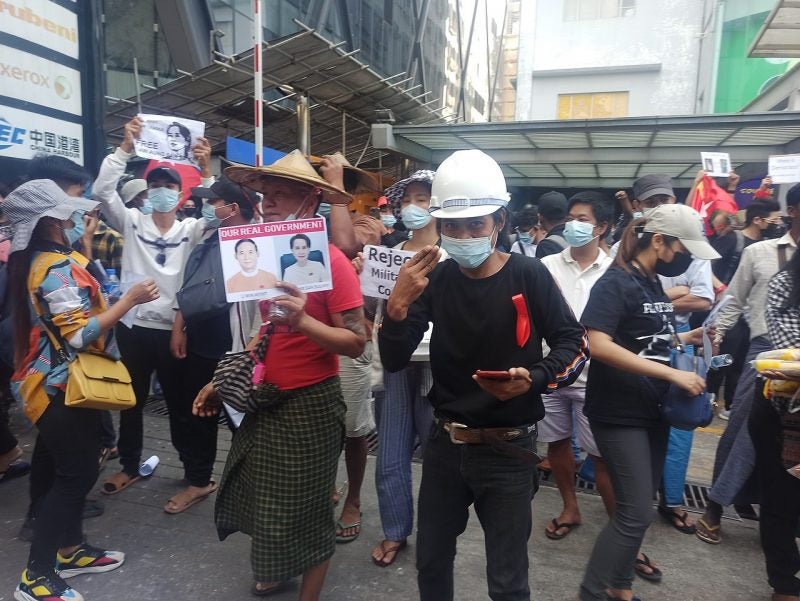
| Title: | Myanmar Coup and the Rohingya Crisis: Responses across South Asia |
| Author/s: | Roshni Kapur, Jasnea Sarma |
| Abstract: | This insight explores the responses of the South Asian states to the coup that took place in Myanmar on 1 February 2021, the resistance movement that followed and the Rohingya crisis which is intertwined with the coup. While there is a recognition that these states need to uphold their democratic norms and ideals in diplomatic statements against the coup, national and realpolitik interests have been prioritised over condemning the military for its violent crackdowns. |
| Date: | 8 June 2021 |
| Read More |
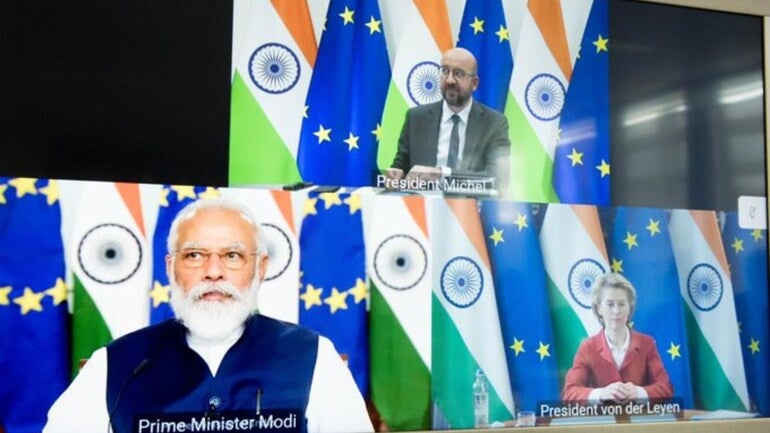
| Title: | The European Union and the Indo-Pacific: Exploring the Nexus |
| Author/s: | Zheng Haiqi, Claudia Chia |
| Abstract: | On 19 April 2021, the European Union (EU) released the ‘EU Strategy for Cooperation in the Indo-Pacific’. This strategy, encapsulated in a 10-page document, is the first of its kind, representing a common EU approach to the Indo-Pacific. It is a testament by the EU to the increasing geopolitical importance of the Indo-Pacific region. Following its European partners, the regional bloc is also looking to assume greater responsibility for regional and maritime security. This paper examines the new EU Strategy, the strategic convergence between the EU and India, and the prospects and challenges for EU-India relations. |
| Date: | 3 June 2021 |
| Read More |
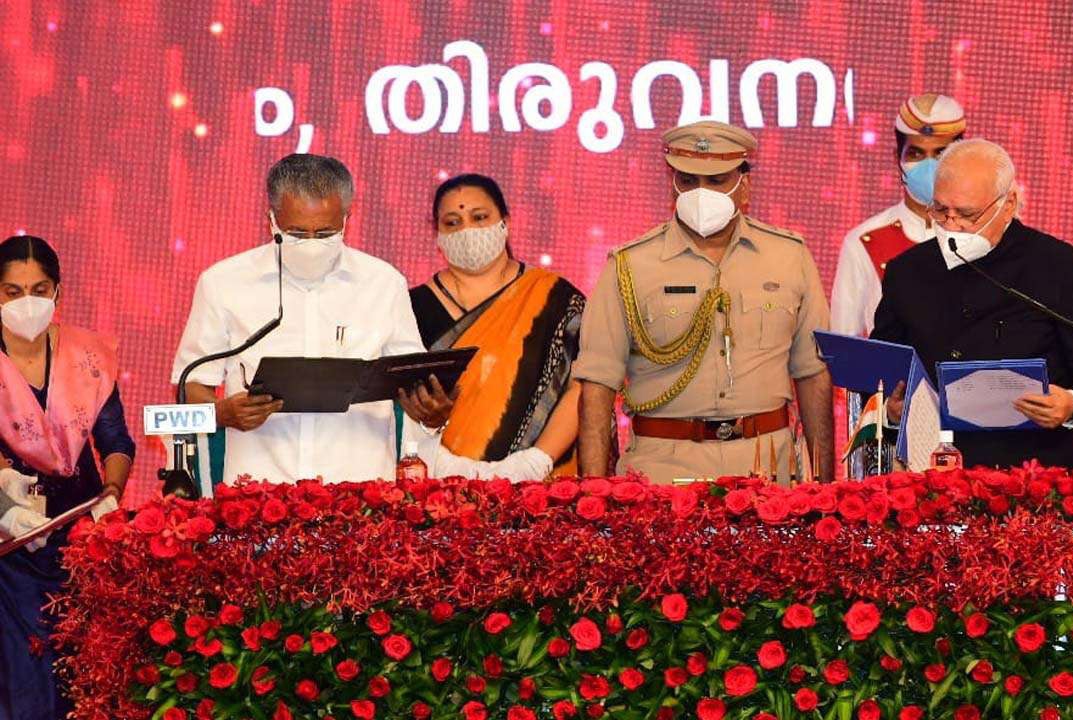
| Title: | Personality Supreme in Kerala: Is this the New Normal among Political Parties? |
| Author/s: | Vinod Rai |
| Abstract: | State election results in May 2021 have thrown up very decisive mandates. The public seems to have vested its trust in parties led by tall local personalities. These leaders seem to enjoy unrivalled authority within their state organisations. The Communist Party of India (Marxist) in Kerala, the Trinamool Congress in Bengal and the Dravida Munnetra Kazhagam in Tamil Nadu, have thrown up leaders who are capable of holding their own vis-à-vis the party outfit. Does this herald an era where individuals will hold the sway over political parties and where these organisations will have to reinvent their decision making processes? We need to observe how these leaders perform |
| Date: | 31 May 2021 |
| Read More |

| Title: | China’s Rare Earth Dominance: Exploring Australia-India Partnership |
| Author/s: | Ryan Seah, Yogesh Joshi |
| Abstract: | Recent threats by China to curb exports of rare earths have highlighted the vulnerability many countries face when importing these strategically important minerals. It has prompted like-minded countries like India and Australia, along with their Quad partners, to explore new avenues of partnership to counter Beijing’s monopoly. This paper analyses the geopolitical and geoeconomics influences impacting the supply chains of rare earths. |
| Date: | 25 May 2021 |
| Read More |
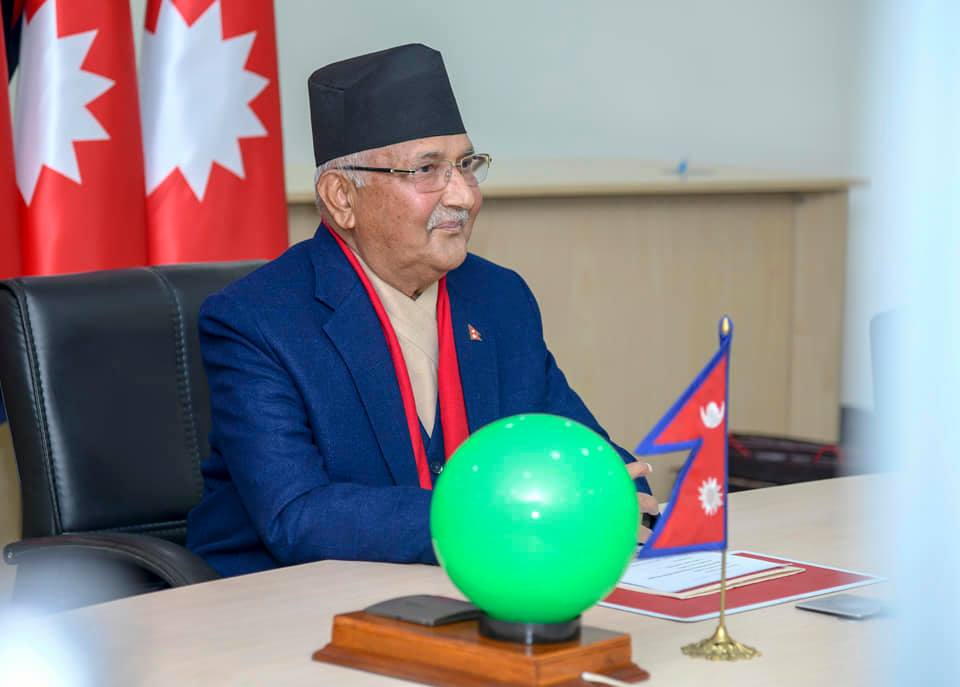
| Title: | K P Oli Loses Trust Vote: Nepal in a Political Crisis |
| Author/s: | Amit Ranjan, Wini Fred Gurung |
| Abstract: | Nepal’s Prime Minister K P Oli lost a confidence vote in the House of Representatives on 10 May 2021. Nepal has two options: provide the opportunity for another alliance or opt for snap polls. At present, no alliance enjoys a majority, and even if some parties come together and form a government, it is difficult to say if they will win the confidence of the House. The next parliamentary election is in 2022. Given the seriousness of the COVID-19 pandemic, it would be unwise to conduct elections at this point. |
| Date: | 20 May 2021 |
| Read More |
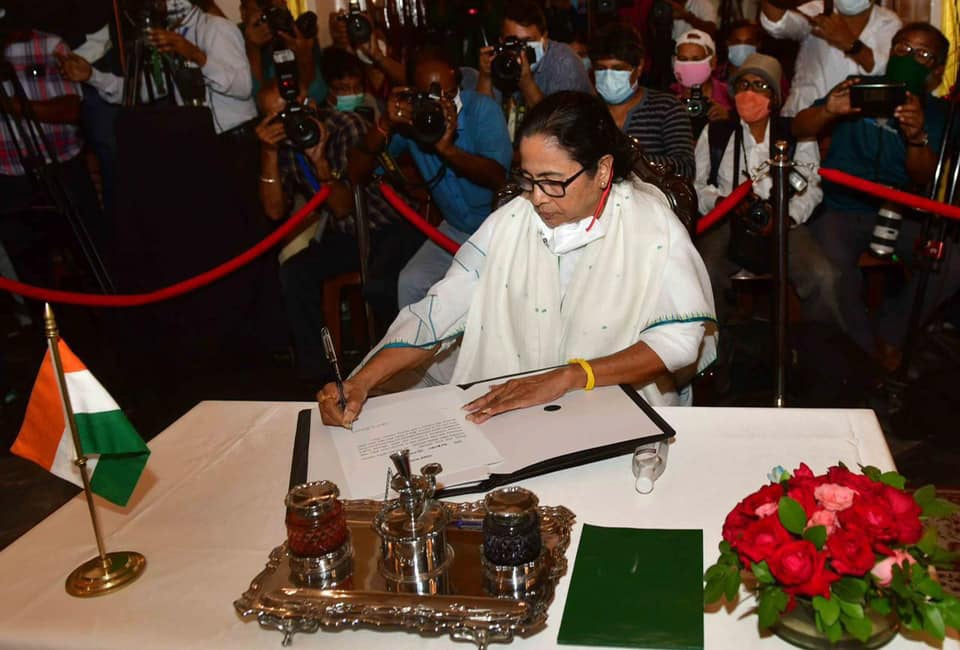
| Title: | Mamata Resists the BJP’s Might, Wins Big in Bengal |
| Author/s: | Ronojoy Sen |
| Abstract: | The emphatic victory of the ruling Trinamool Congress (TMC) in the West Bengal Assembly election ushered in a third term for Chief Minister Mamata Banerjee. The TMC’s win was comprehensive, with Mamata’s popularity, the government’s welfare schemes and women’s vote being important factors. The result was a blow to the Bharatiya Janata Party (BJP), which had raised the stakes in the election outcome, with the prime minister and home minister expending considerable energy in the campaign. The result has burnished Mamata’s credentials and dented the BJP and the prime minister’s image in the short run. |
| Date: | 19 May 2021 |
| Read More |
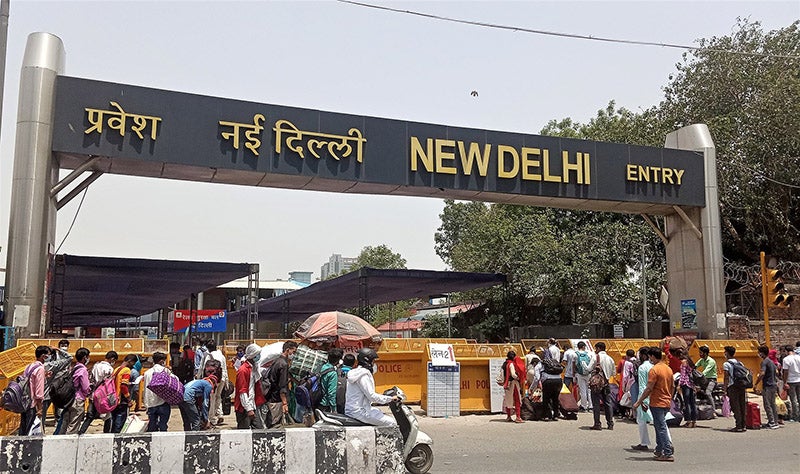
| Title: | COVID-19 Lockdown in India: Impact on the Poor and the Government’s Response |
| Author/s: | Ramita Iyer, Diego Maiorano |
| Abstract: | The imposition of a complete lockdown by the Indian government in March 2020 to prevent a rise in COVID-19 infections has had a substantial impact on the country’s economy and health. Over the past one year, a large proportion of Indians, mainly the socio-economically marginalised, have found it difficult to find jobs, feed their families and access basic healthcare. To address these problems, the government has taken a variety of measures, including the introduction of new policies in the 2021 Budget. The efficacy of these initiatives, however, is yet to be seen. |
| Date: | 19 May 2021 |
| Read More |

| Title: | Sri Lanka in a Post COVID-19 World: Balancing Ties with the Great Powers |
| Author/s: | Ganeshan Wignaraja |
| Abstract: | As it looks towards a post COVID-19 world, Sri Lanka, with its strategic location in the Indian Ocean, faces the stark policy choice of either tilting towards China or balancing its ties with the great powers. While China’s successful pandemic diplomacy and commercial focus has made it economically important, it is timely for the island nation to reap additional rewards by following a more nuanced and balanced posture in its relations with China, the United States and India. |
| Date: | 18 May 2021 |
| Read More |

| Title: | Mohamed Nasheed Attacked: Rise of Islamic Radicalism in the Maldives |
| Author/s: | Amit Ranjan |
| Abstract: | The recent bomb attack on former President Mohamed Nasheed clearly indicates that radical groups are actively advancing their position in the Maldives. Radical ideology has strengthened itself in the Maldives and has, in the recent past, been assisted by state institutions. To deal with the extreme elements and radicalism in the Maldives, Ibrahim Mohamed Solih’s government took several steps. However, these have not been effective in dealing with the menace. |
| Date: | 18 May 2021 |
| Read More |
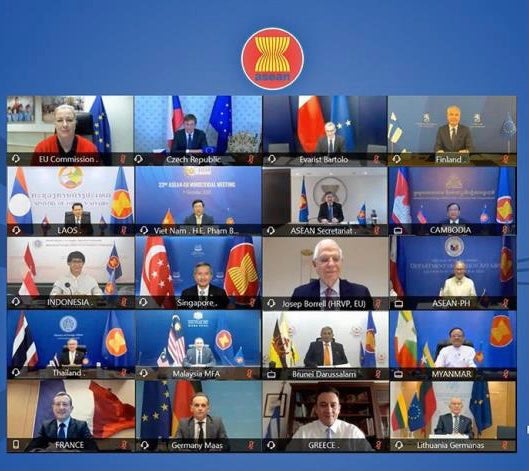
| Title: | Europe’s Indo-Pacific Adoption: Two Southeast Asian Challenges |
| Author/s: | Malcolm Cook |
| Abstract: | The European Union and a growing number of European states are adopting the Indo-Pacific regional concept. This puts them ahead of the Association of Southeast Asian Nations (ASEAN) and most Southeast Asian states, despite the region’s central location in the Indo-Pacific. Europe’s Indo-Pacific adopters need to understand Southeast Asian concerns with the Indo-Pacific when engaging with regional states and ASEAN. |
| Date: | 17 May 2021 |
| Read More |
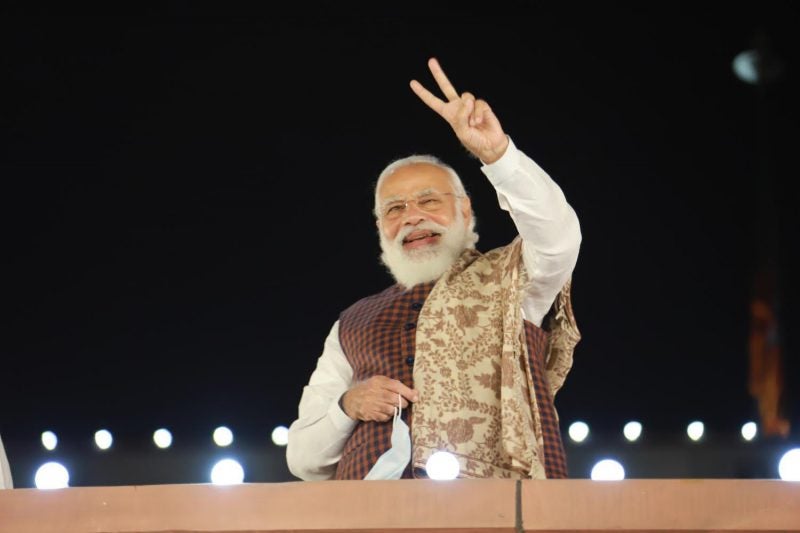
| Title: | India’s State Election Results: Implications for the BJP |
| Author/s: | Diego Maiorano |
| Abstract: | In March and April 2021, four important Indian states went to the polls. The results have been disappointing for India’s ruling party, the Bharatiya Janata Party (BJP). Since most voters expressed their preferences by voting before the second wave of the COVID-19 pandemic became fully evident, the results are not an indication of the voters’ perception of the management of the pandemic. However, the behaviour of the government and of Prime Minister Narendra Modi during the electoral campaign might have dented his popularity significantly, particularly among the urban middle classes. |
| Date: | 14 May 2021 |
| Read More |

| Title: | India and Emerging Technology Coalitions |
| Author/s: | Karthik Nachiappan, Nishant Rajeev |
| Abstract: | As technology emerges as a geopolitical faultline, existing and emerging international regimes and frameworks are under pressure to create rules and address problems wrought by new technologies. Technology coalitions could address these problems. They are quickly gaining currency among the developed economies as a means to stifle China’s rise as a technological power. However, India has been reticent at these new coalitions, cautiously appraising whether discussions will bind its hand before developing its own laws and frameworks. |
| Date: | 10 May 2021 |
| Read More |
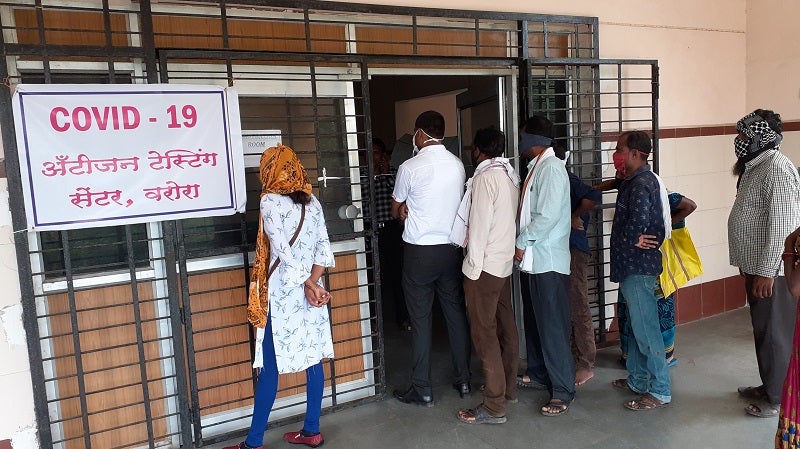
| Title: | The V-shaped COVID-19 Surge in India: How will it impact Growth? |
| Author/s: | Vinod Rai |
| Abstract: | While the forecast for India’s economic growth for this fiscal year has been pegged by all institutions at around 12 per cent, a sharp surge in COVID-19 cases has put a shadow on its recovery. With the hindsight of the slowdown of the economy in 2020, government policies have attempted to ensure that a balance between lives and livelihoods is maintained so that the public is not subjected to greater hardship. In the ultimate analysis, the government will have to ramp up vaccination, boost vaccine production and ring fence economic activity to minimise disruption. |
| Date: | 19 April 2021 |
| Read More |

| Title: | Reconciling Regional Differences: Pivotal to Afghan Reconciliation |
| Author/s: | Vinay Kaura |
| Abstract: | The peace process in Afghanistan will add a new chapter to the country’s violent history. This paper discusses the interests and positions of the key stakeholders in the Afghan conflict as the world gets ready for the United Nations-led multilateral process to be held in Turkey, in line with the Joe Biden administration’s new Afghan policy. Recent developments show that the Taliban are a reality; they are getting support from different quarters. Islamabad remains the key to the implementation of Washington’s new strategy on Afghanistan, which also seeks to incorporate the Indian perspective. However, attaining a workable solution to the Afghan conflict will be difficult without eliminating deep-rooted mutual distrust between the Afghan government and the Taliban, as well as minimising the level of violence. |
| Date: | 12 April 2021 |
| Read More |
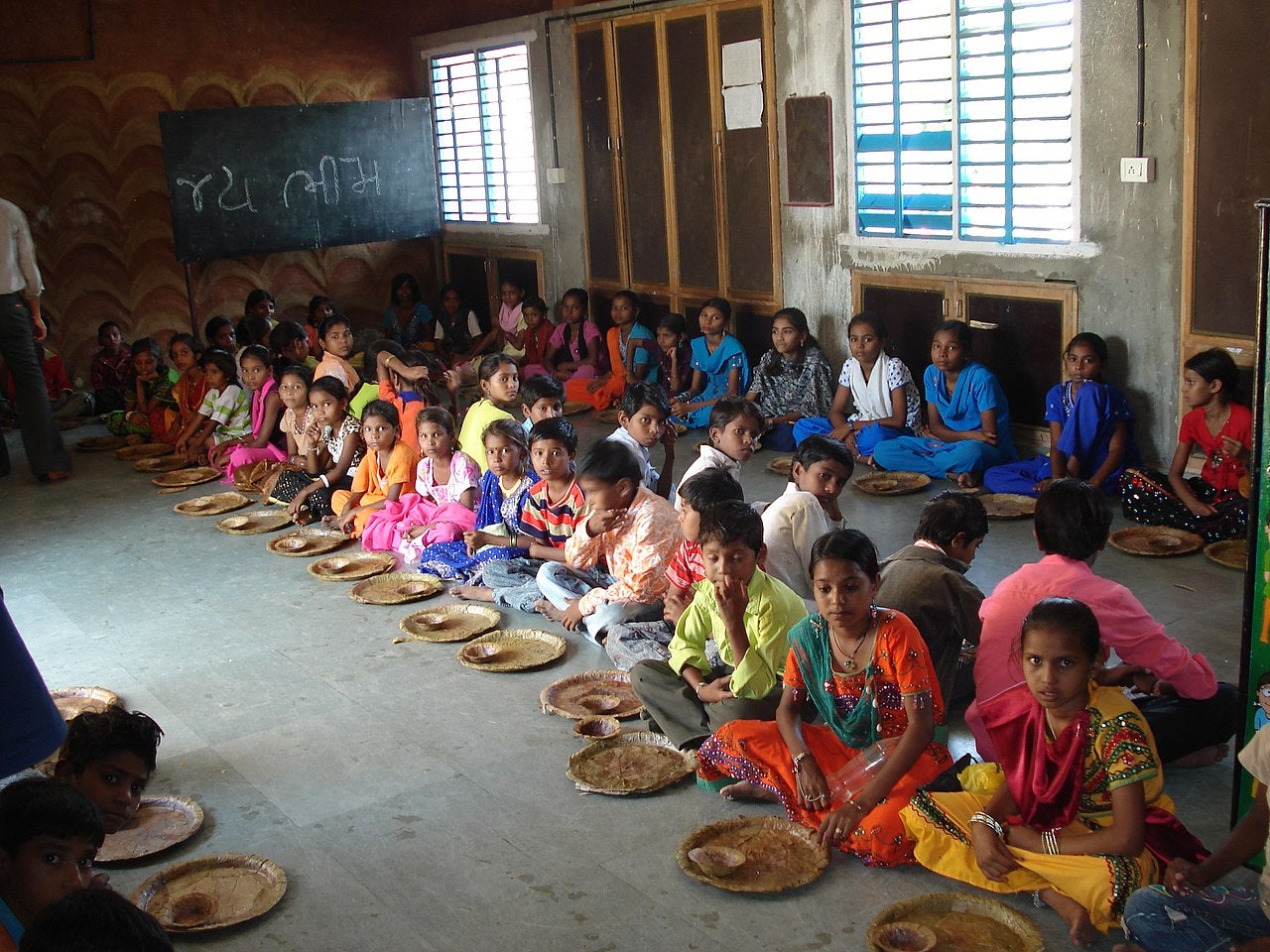
| Title: | Nutritional Consequence of the Lockdown in India: Indications from the World Bank’s Rural Shock Survey |
| Author/s: | Divya Murali, Diego Maiorano |
| Abstract: | This paper analyses the impact of the COVID-19 pandemic on the consumption of rural households in India through evidence from World Bank’s COVID-19-Related Shocks in Rural India 2020. The analysis shows that a sizeable section of the rural population had to compromise on their food intake, reflecting widespread vulnerability to economic shocks. |
| Date: | 6 April 2021 |
| Read More |
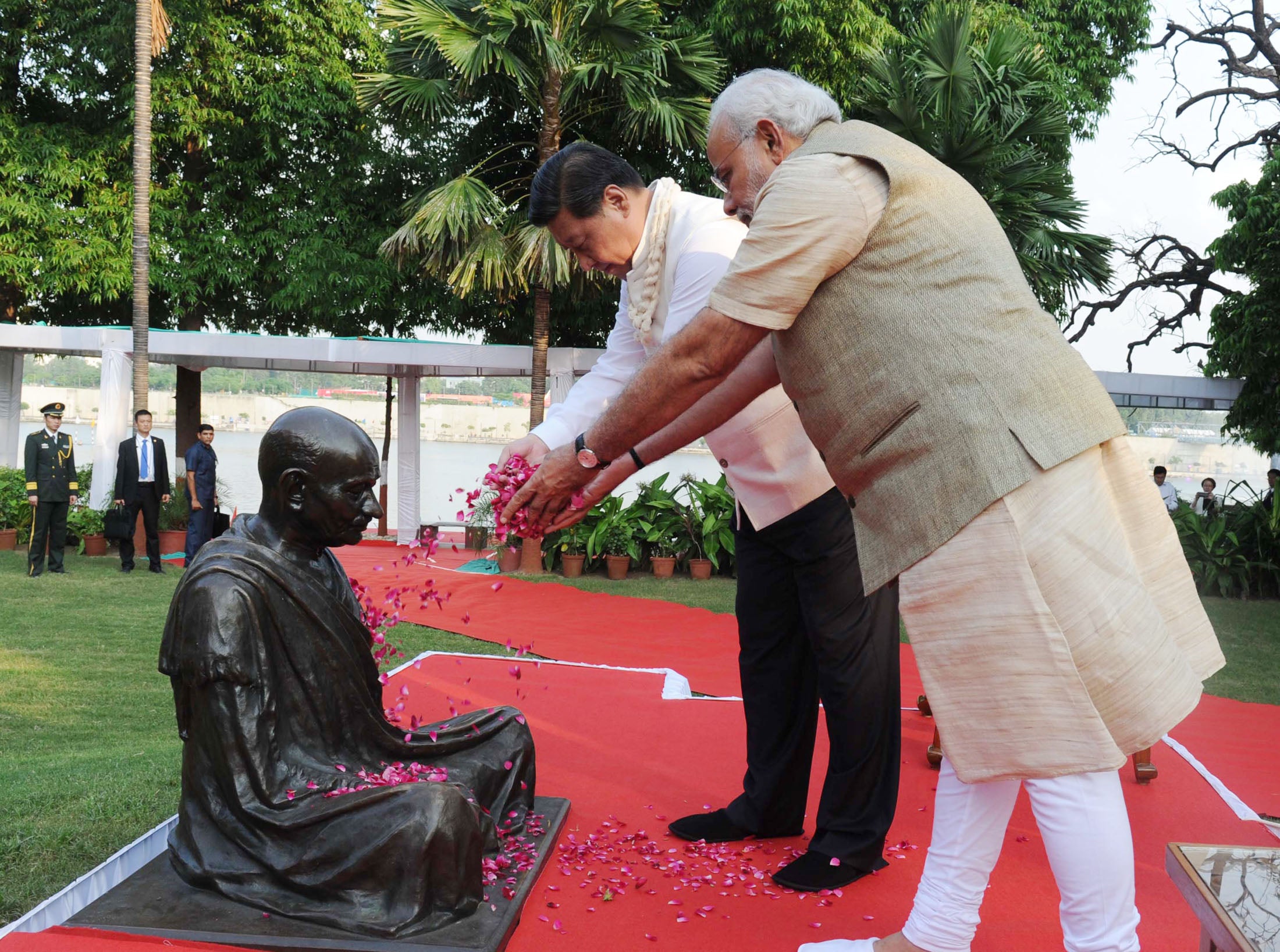
| Title: | China-India Relations: How Different Perceptions Shape the Future |
| Author/s: | Zheng Haiqi |
| Abstract: | China-India relations are at a crossroads. Changing dynamics indicate that border disputes are likely to be part of the new normal which will create difficulties in restoring the bilateral relations to a normal level. The formation of competitive relations has mainly contributed to the difference in perceptions between China and India in terms of border issues and the countries’ broader strategic designs. These conflicting visions may hinder their efforts to reach a potential consensus and bring about progress in their relationship. To prevent bilateral relations from getting out of control, both sides must recognise and communicate their respective interests and expectations moving forward. |
| Date: | 1 April 2021 |
| Read More |
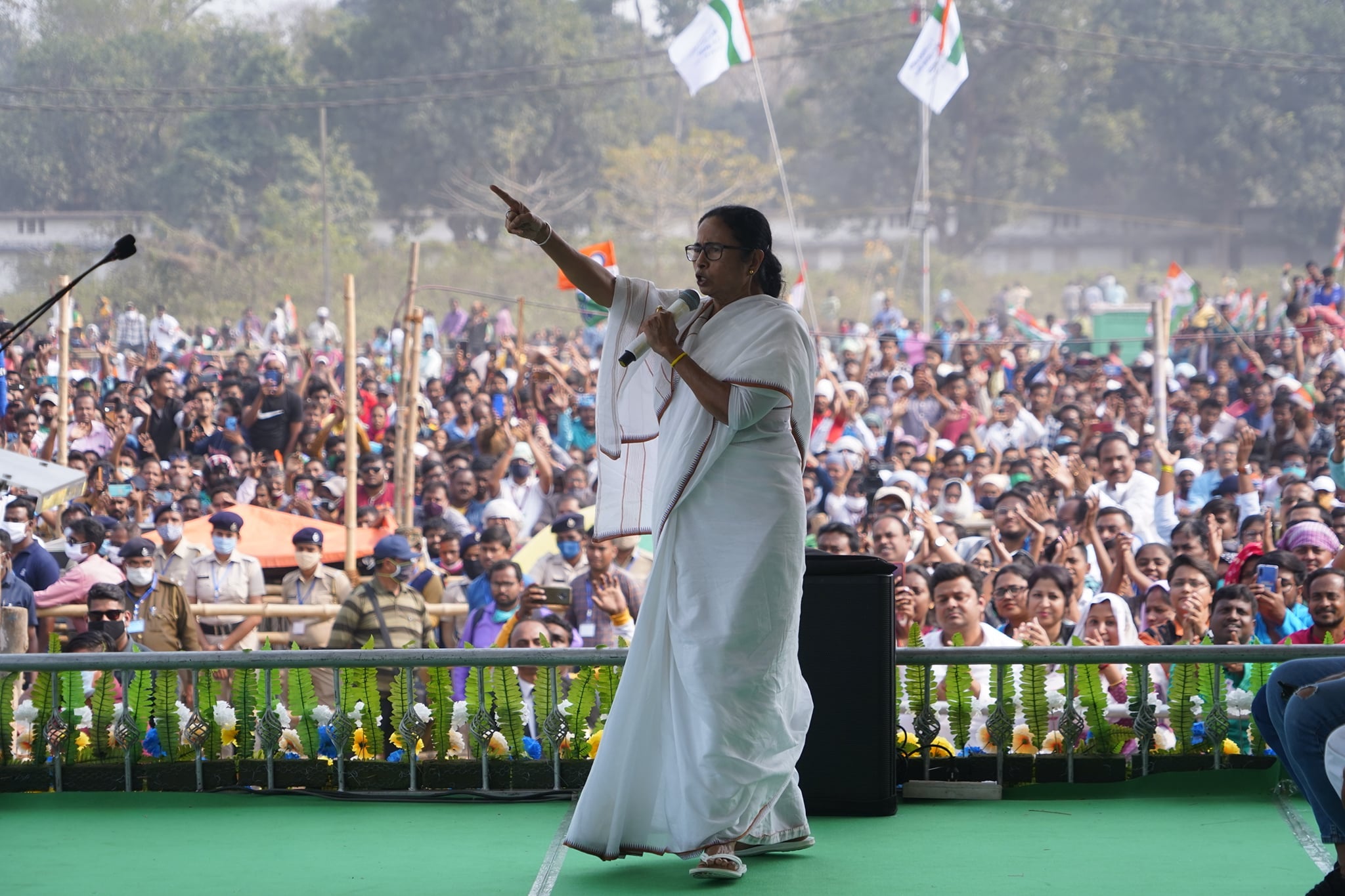
| Title: | Mamata faces Strong BJP Challenge in Bengal |
| Author/s: | Ronojoy Sen |
| Abstract: | West Bengal heads to the polls in end-March 2021. Opinion polls have predicted a tight race with the ruling Trinamool Congress having an edge over the Bharatiya Janata Party. Irrespective of the results in West Bengal, the foregrounding of identity politics is likely to change the ground rules of politics in the state. |
| Date: | 26 March 2021 |
| Read More |

| Title: | India-Australia Cooperation on Trade in Critical Minerals |
| Author/s: | Natasha Jha Bhaskar |
| Abstract: | In 2019, the Australian government released the ‘Critical Minerals Strategy’ which wanted to position the country as a “world powerhouse” in critical minerals. In June 2020, Australian Prime Minister Scott Morrison and Indian Prime Minister Narendra Modi agreed to upgrade their countries’ bilateral relationship to a comprehensive strategic partnership. Both countries have signed a memorandum of understanding (MoU) that will explore opportunities to increase trade, investment and research and development in critical minerals. The MoU identifies specific areas that include information-sharing between the two countries; connecting research institutions and universities; and collaborating on actions to support stable, secure and resilient supply chains for critical and strategic minerals. In November 2020, the first India-Australia Critical and Strategic Minerals Joint Working Group meeting agreed on actions to be delivered in the specified areas of the signed MoU. This joint working group is a significant step in implementing the MoU on critical minerals between the countries. This paper explores India’s need for critical minerals in the new energy economy and Australia’s strength in the critical minerals sector. It also offers key suggestions on ways in which India and Australia can enable this partnership. |
| Date: | 18 March 2021 |
| Read More |
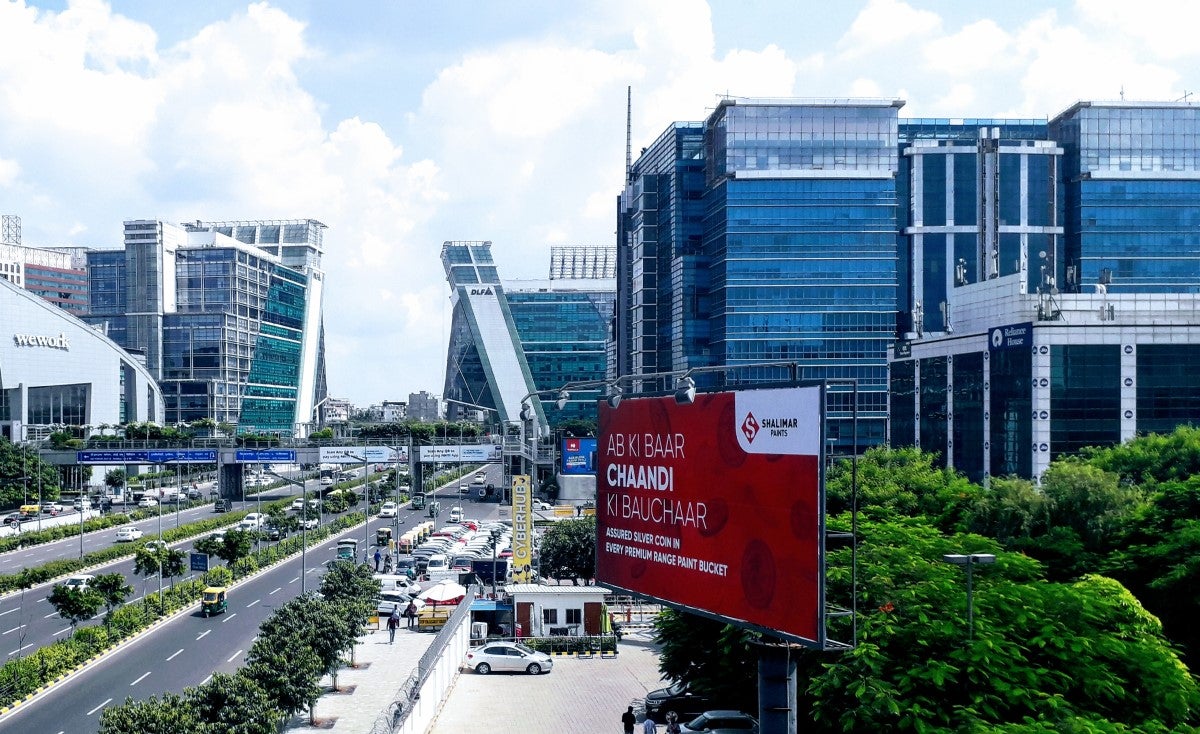
| Title: | A Multi-Speed South Asian Recovery from the Pandemic Recession |
| Author/s: | Ganeshan Wignaraja |
| Abstract: | The COVID-19 pandemic represents a crisis like no other for South Asia with a collapse of growth and a rise in poverty. The advent of vaccines has led to cautious optimism about an uneven, multi-speed recovery. Adopting an effective mix of stimulus policies and structural reforms will help South Asia address the economic fallout from the pandemic and build momentum for pro-poor green growth. |
| Date: | 16 March 2021 |
| Read More |
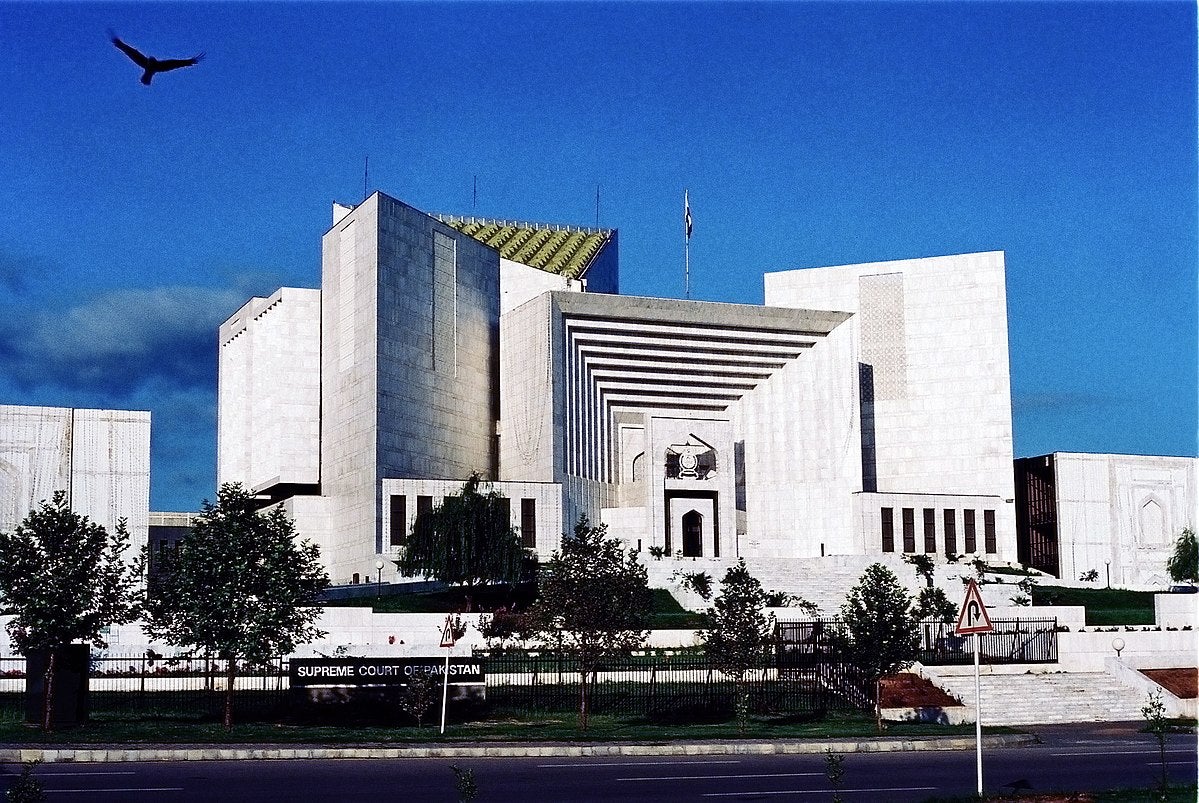
| Title: | The Politics of Eliminating Riba: Tensions between Secular and Islamic Courts |
| Author/s: | Imran Ahmed |
| Abstract: | The Constitution of the Islamic Republic of Pakistan contains numerous provisions aimed towards the political, legal and economic system of the country conforming to Islamic norms and injunctions. The difficulty in achieving this goal, however, is that numerous ambiguities exist in the text of the document, including the absence of clear definitions of key and relevant terms. The absence, often, of a decisive and coherent action plan to realise high aspirational Islamic goals further provokes enduring political and legal contestation. These tensions are perhaps most evident in Pakistan’s struggle to establish a just, equitable and moral economic order through the elimination of riba. This paper shows how the struggle to eliminate riba demonstrates fundamental tensions in the constitutional order concerning the jurisdictional boundaries between the secular and Islamic courts. |
| Date: | 5 March 2021 |
| Read More |

| Title: | Indian Government’s Bold Banking Reforms: Timely Implementation Key to Success |
| Author/s: | Vinod Rai |
| Abstract: | The Indian government announced a slew of reforms to bolster the financial sector in this year’s budget. The measures are those which were being considered for a while but no decisions had emerged till now. With a progressive roadmap laid out, it is now time to ensure early implementation in order to support the medium term growth of the economy. A healthy banking sector is critical to economic growth and it is imperative that the government backs up these policy decisions with resolute, wholehearted and timely execution. |
| Date: | 2 March 2021 |
| Read More |

| Title: | District Development Councils: A Precursor to Assembly Elections? |
| Author/s: | Vinod Rai |
| Abstract: | In October 2020, the Union government in India amended the Jammu and Kashmir Panchayati Raj Act, 1989, to introduce a provision to hold direct elections to District Development Councils (DDCs) with the avowed objective of bringing democracy to the grassroots. The election generated national attention, as it was the first political exercise after the abrogation of Article 370 of the Constitution. Elections were held in a peaceful atmosphere and the results appear to be along predictable lines. The Jammu region continues to be dominated by the Bharatiya Janata Party whereas the Srinagar region has the People’s Alliance for Gupkar Declaration in majority. To what extent will the functioning of these DDCs bring about more political participation from the grassroots will be determined by the independence enjoyed by them. The outcome of the elections does not appear to give the impression that they will herald Assembly election any time soon. |
| Date: | 8 January 2021 |
| Read More |
Load more


